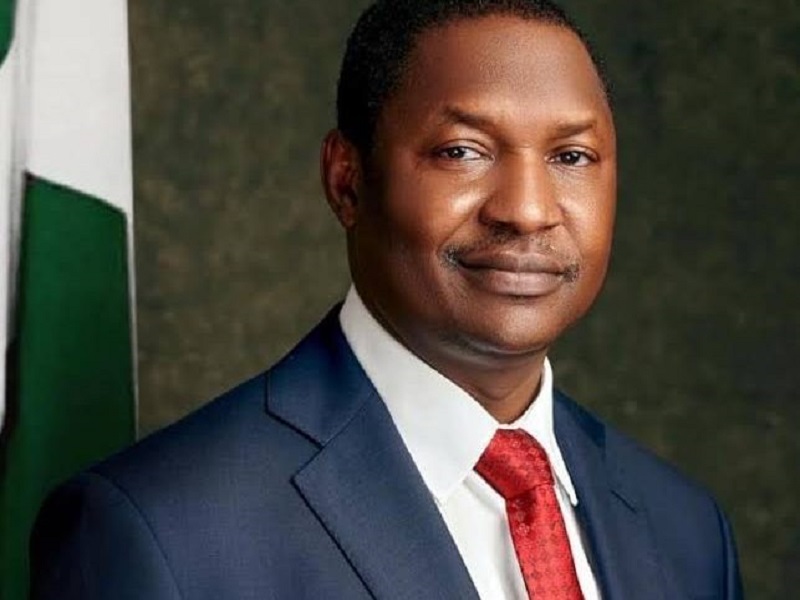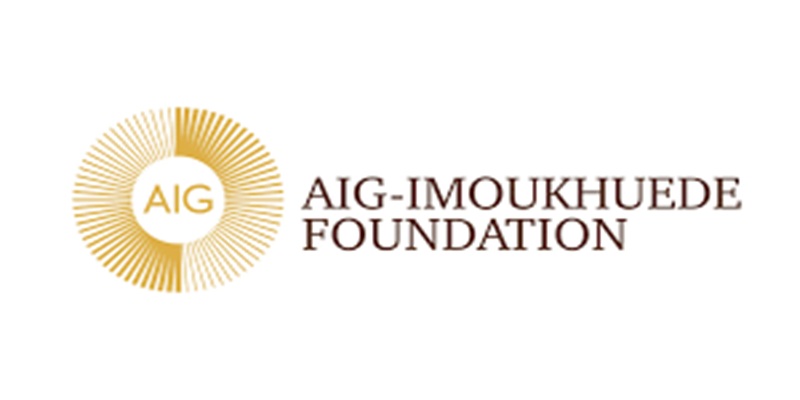Broadcasting
Why AGF Malami Must Not Soil His Reputation, Governorship Ambition

By Adamu Sani, Public Affairs commentator
The Attorney General of the Federation and Minister of Justice, Abubakar Malami remains a man who divides opinions. However, in spite of the differing opinions, everyone will agree that the AGF has done a sound job in defending Nigeria and staying true to the course of justice in his dealings in his hallowed position.

This is despite the overwhelming challenges faced by the country on different fronts: political, security and even in the face of huge external or international influences.
I have decided to expose, amongst other few cases, this particular case which is very laughable and capable of eroding the credibility of our institutions. We all know the main reasons why we cannot attract substantial foreign investment into the country is our erratic forex rate and very weak legal system. Malami stands the risk of damaging his hard-earned reputation over a particular case that has lingered in the courts since 2016. Having followed this case over the years, it is clear that the man at the centre of the storm, one Mr. Benjamin Joseph, alleged owner of an Ibadan-based ICT company – Citadel Oracle Concepts Ltd and an Igbo man, is taking advantage of the AGF’s simple nature to pull a mischievous stunt which may end up ruining Malami’s reputation, Nigeria’s legal system and making nonsense of the position of the Police in our society as the protector of law and order in the country. If the Inspector General of Nigeria Police is of no consequence, then the entire Nigeria Police Force is ruined.
Currently, the said Benjamin Joseph is facing a criminal trial instituted by the Inspector-General of the Nigerian Police which has dragged on for years and for which he has refused to appear in court to defend himself. Instead, he has come up with a ruse to hoodwink AGF Malami to discontinue the case, thereby evading justice and using this as a leverage for other civil cases for which he is seeking damages unjustifiably.
Already, Malami has, on two occasions, taken over this case before reinstating it and asking the Police to continue with the prosecution of the accused, Benjamin Joseph. But recently, specifically on January 18, 2022, a legal officer from the Federal Ministry of Justice, armed with a letter from the Office of the Director of Public Prosecutions of the Federation (DPPF) on behalf of the AGF, announced his appearance to take over the case, with the intention of discontinuing same. It is worthy to note that this is the third time this had happened in same case in same court, following each petition by Benjamin Joseph. But on each of those occasions, the Honourable AGF would recant his decision and reinstated the prosecution of Mr. Joseph by the Police prosecutor on behalf of the Inspector-General of the Police.
One of the worst fails in a democracy is to see people flagrantly cheat the system or evade justice. In the case of Benjamin Joseph, AGF Malami, perhaps innocently, may end up rubbishing his years of exceptional service to the nation and a potential smooth run to the Kebbi governorship seat, by unknowingly aiding a man who should have his day in court to defend a case which he reported to the Police highest command and is now afraid to defend. Such questionable events should not be allowed to continue in our legal system.
AGF Malami should refer to a connected case in Charge No. CR/244/2018: Fed. Republic of Nigeria Vs. Princess Kama and Chief Onny Igbokwe, before Honourable Justice Senchi, a distinguished Judge of the FCT High Court following a similar petition by the said Benjamin Joseph to the Vice President of Nigeria who endorsed it for investigation by the EFCC. On February 24, 2021, Justice Senchi delivered judgement in the case, discharging and acquitted the said two defendants. In the judgement, the court dismissed the complaint of Citadel Oracle Concepts Ltd on the merit of the case as false. The court also awarded the sum of Twenty Million Naira(N20m) as damages against Mr. Benjamin Joseph, the MD of Citadel Oracle Concepts Ltd, for giving false information to the Vice President and the EFCC (same false information he gave to the Police for which he is facing criminal charges). The Honourabe Judge in the said judgment stated that the award of N20m as damages is to serve as a deterrence against persons who would indulge in false petitioning. This loudly vindicates the case of the Police against Mr. Benjamin Joseph. It is worthy to note that while the above case was going on Mr. Benjamin Joseph on many occasions refused to attend court to defend his claims because he was afraid to face cross-examination which would expose him.
The background of this long-drawn case, which the said Benjamin Joseph has made Malami erroneously intervene in, thrice, stems from a 2012 credit sale of HP laptops by Technology Distributions Limited (TD Africa) to Citadel Oracle Concepts Limited through its authorised representatives, Princess Kama and Chief Onny Igbokwe, for delivery to the Federal Inland Revenue Services (FIRS). To avert diversion and previous unsavory experiences by beneficiary debtors, TD had insisted that the credit sale would be secured by the opening of a bank account into which the proceeds of the contract would be paid into, while also appointing its staff to be part of the signatories to the bank account into which the end-user would pay the money for the laptops supplied on credit.
Consequently, TD had nominated two of its staff, Mr. Chris Eze Ozims (Company Secretary) and Mrs. Shade Oyebode (then Executive Director) to be signatories to both accounts after both companies accordingly opened an account with Access Bank on December 20, 2012, with a Board resolution duly signed on December 18, 2012 by Benjamin Joseph on behalf of Citadel Oracle Concepts Ltd. After payment was made by the FIRS, TD deducted the pre-agreed invoice sum of the laptops supplied on credit. It is instructive to note, from the facts of this case, that the company extended the same credit gesture to other resellers, apart from Citadel Oracle Concepts Ltd.
After a disagreement with Princess Kama, one of his representatives, over the sharing formula, Benjamin Joseph turned around to petition the Nigerian Police Special Fraud Unit (SFU), Milverton Road, Ikoyi, Lagos, alleging that his company was fraudulently used without his knowledge to do contract with FIRS and no computers were supplied. He also claimed its board resolution was also forged to open Account for the execution of the FIRS contract. Investigations conducted by the SFU, after the board resolution was sent for forensic analysis, proved that the document was not forged, while also revealing that the HP laptops were indeed supplied to FIRS, and that TD was entitled to receive payment of products it has supplied on credit. FIRS also confirmed with documentary proof that Mr. Benjamin Joseph was aware of the contract and personally authorized his representative Princess Kama. Consequently, the SFU report absolved TD of any criminal liabilities.
From there, Joseph petitioned the Force (CID) Headquarters, Abuja, then headed by Mr. Solomon Arase. After investigating and reconfirming the authenticity of the forensic analysis report which had confirmed that he (Benjamin Joseph) actually signed the board resolution which he had alleged was forged, as well as the fact that the HP laptops were supplied, the IGP charged Mr. Benjamin Joseph to court for knowingly giving the Police a misleading (false) information in CHARGE NO. CR/216/16: INSPECTOR GENERAL OF POLICE vs. BENJAMIN JOSEPH at the FCT High Court, Abuja, Nigeria, before Honourable Justice Peter Kekemeke.
Since then, Joseph has, over the years, petitioned other security agencies including the Economic and Financial Crimes Commission (EFCC), as well as the Vice President, Yemi Osinbajo amid recent fresh petitions to the Inspector General of Police in 2020, which was also dismissed on the grounds of earlier outcomes of investigations by the authorities, all in a bid to artfully dodge his day in court and a full-on cross examination on his many claims. In other instances, he had claimed that the Federal Government was defrauded over the laptop supply, while attempting to rope in the Chairman of the Zinox Group, Leo Stan Ekeh and his wife, Mrs. Chioma Ekeh, all in a bid for possible extortion, among other artful tactics to deflect attention from his ongoing trial.
Two civil cases are pending on the hearing stage over the gimmicks of Mr. Joseph who, often times, embarks on dramatic acts of rolling on the floor in court or other public offices in order to falsely curry sympathy. However, one of the principles of law behoves on the one who alleges to prove his claims. If he has a water-tight case or has nothing to hide, why is Joseph afraid to open his defence long after the prosecution had closed its case? It is instructive to know that after the prosecution closed its case in 2018, Mr. Benjamin Joseph filed a ‘No Case’ submission, which the court heard but ruled against him, stating that the prosecution had made out a prima facie case against him. The court directed him to open his defence since 2018. But instead of opening his defence, he has been running around government agencies, including the esteemed office of the AGF to take over the case, dismiss the charge and acquit him. Is that how a legal system should function?
AGF Malami should allow this long-drawn case to run its full course in order to avoid a miscarriage of justice – an act capable of tarnishing his unblemished reputation. The Police should be allowed to conclude a trial they began since 2016.
Broadcasting
US invests $115m in counter-drone tech for World Cup security


Drone
The US Department of Homeland Security (DHS) will invest $115 million in counter-drone technology to safeguard the 2026 FIFA World Cup and events marking America’s 250th independence anniversary, creating a dedicated office for rapid drone system deployment.
Homeland Security Secretary Kristi Noem described drones as “the new frontier of American air superiority,” stressing the need to counter threats from drug cartels using unmanned aircraft for smuggling and surveillance, alongside incidents like a 2025 NFL stadium drone flight and 2024 New Jersey sightings.
The funding supports 11 World Cup host cities expecting over one million visitors, building on FEMA’s $250 million grants to those states and addressing risks heightened by cartels’ advancing tech, including a reported FBI tracking plot in Mexico.
DHS has conducted over 1,500 counter-drone missions since 2018, with the new Program Executive Office accelerating acquisitions amid President Trump’s border security push.
Broadcasting
Youth Talent Takes Center Stage as T2 Ignites High-Octane Rap Battles @ Carnival Calabar

The energy at the Carnival Calabar Music Concert reached a new high as T2 introduced a first-ever rap battle platform, giving young Nigerians an electrifying stage to showcase their talent, creativity, and self-expression while competing for exciting prizes.

Held at the U.J. Esuene Stadium, the activation blended pulsating music, vibrant culture, and youthful energy into a dynamic celebration that kept thousands of carnival-goers fully engaged from start to finish.
Eight fearless contestants stepped into the spotlight, going bar for bar in an intense lyrical showdown. Rappers fused local languages, pidgin, and sharp punchlines, creatively weaving the T2 brand into their verses.
Anchored by the energetic hosting duo MC Double I and MC Princess, the rap battles thrilled over 16,000 attendees, including the Governor of Cross River State, Senator Bassey Otu, delivering an unforgettable showcase of youth talent and cultural expression.
With prizes including fridges, gas cookers, sound systems, and airtime top-ups, the competition remained fierce throughout the night. After two high-energy rounds narrowed the field to a five-man final duel, Emmanuel Eye emerged as the overall winner, taking home the grand prize — a fridge.
“I never expected this at all,” Emmanuel said. “I came to the concert like anyone else, and hearing about the T2 rap battle was a surprise. When I got the chance to perform, I just went for it. Being named the overall winner is amazing, and I’m grateful to T2 for creating this platform to showcase our talent.”
Beyond the stage performances, T2’s presence added a digital layer to the carnival experience. As part of its role as Digital Technology Partner of Carnival Calabar, the brand introduced the MyT2 App as a lifestyle companion, while also enabling line reactivations, airtime top-ups, and instant rewards for hundreds of attendees, blending technology seamlessly into the live celebration.
Commenting on the activation, Chinelo Manefo, Specialist, Events and Sponsorship at T2, said:
“The energy from both the rappers and the crowd was incredible. This platform reflects exactly what T2 aims to create — a celebration of youth, creativity, and culture, enhanced by technology that connects people and experiences. Seeing the audience so immersed shows how music and performance can empower the next generation.”
The Carnival Calabar Music Concert, headlined by Tiwa Savage, Timaya, and top local performers, was further energized by T2’s interactive rap battle platform. By blending music, culture, youth expression, and digital innovation, T2 reinforced its commitment to championing Nigeria’s next generation, giving young creatives a stage to shine while enriching how they experience the festival.
Broadcasting
Aig-Imoukhuede Foundation Wrapped Up 2025 with Real Change in Governance, Health, Media Across Africa

Aig-Imoukhuede Foundation has announced its 2025 achievements, marking a year of accelerated impact, systemic reforms and innovation in public leadership and service delivery across Africa.

Aig-Imoukhuede Foundation
A statement issued on Wednesday in Lagos said the foundation strengthened governance, improved primary healthcare, drove digital transformation and elevated media’s role in promoting public sector accountability.
It said the AIG Public Leaders Programme (PLP) trained 72 public sector leaders from Nigeria, Egypt, Tanzania, Cameroon, Zambia, Malawi and Kenya—its fastest growth to date—bringing the alumni network to 309.
These alumni are driving 237 reform projects to enhance public institutions, from faster decision-making to greater transparency, with nine promoted to higher roles for their contributions.
On civil service modernisation, the foundation accelerated digitalisation at the Office of the Head of the Civil Service of the Federation (OHCSF), streamlining 19 processes and achieving a 75 per cent increase in work speed through automated workflows.
It also trained over 400 officials from the Federal Ministry of Justice, Federal Civil Service Commission and Federal Ministry of Innovation, Trade and Investment in digital skills to support the FCCSIP 25 initiative and ongoing digital rollouts.
In healthcare, the Adopt-A-Healthcare-Facility Programme renovated four primary healthcare centres in Edo State, boosting antenatal visits by 73 per cent, immunisation coverage over 100-fold and fully vaccinating 554 children, while supporting 6,788 patients.
The foundation recognised 18 outstanding public servants with ₦500,000 each via the Emily Aig-Imoukhuede Endowment Awards and received a partnership award from the OHCSF for civil service reform efforts.
To empower media, it trained 50 journalists from top Nigerian media houses in impact storytelling, data analysis, visual and ethical reporting to better inform citizens on public sector changes.
Over five years (2021–2025), the foundation invested £2.6 million in PLP, saved ₦2.38 billion for the public sector through capacity building, trained 1,500+ civil servants, upskilled 660 digitally, trained 40 permanent secretaries and awarded 33 scholarships driving seven policy changes.
Other milestones include digitising 5,000 files, automating 333 processes, a 61 per cent efficiency gain, 60 per cent digital file creation at OHCSF, 128 excellence awards, 116 process reforms, 23 advocacy projects, 25 capacity initiatives, 18 podcasts, four healthcare articles, three policy papers, 23 adopted PHCs (four renovated) and 878+ fully immunised children aged 0–9 months.
Executive Vice Chair, Mr Aigboje Aig-Imoukhuede, said: “2025 was a year of real, measurable impact. From training hundreds of public servants to improving healthcare, helping ministries go digital, and equipping journalists to tell stories that matter, our work is making governments work better for citizens and communities across Africa.”

 E-Financial3 days ago
E-Financial3 days agoSEC Hikes Minimum Capital Requirements for Market Operators After a Decade

 Telecom3 days ago
Telecom3 days agoStudy Shows Blocks in Telegram are Pushing the Underground Out

 News3 days ago
News3 days agoNigeria Off EU High-Risk Money Laundering List in Major Financial Win

 News3 days ago
News3 days agoNGX Unveils Net-Zero Plan for Greener Capital Market

 Telecom3 days ago
Telecom3 days agoGalaxy Backbone Marks Two Decades of Powering Nigeria’s Digital Evolution

 Telecom3 days ago
Telecom3 days agoVodacom Crowned Africa’s Top Employer 3rd Year Running on Innovation, Ethical AI

 Telecom3 days ago
Telecom3 days agoGalaxy Backbone Marks 20 Years, Tops FG Website Scorecard

 E-Financial18 hours ago
E-Financial18 hours agoHere Are Nigerian Banks That Have Secured Their Licences



























